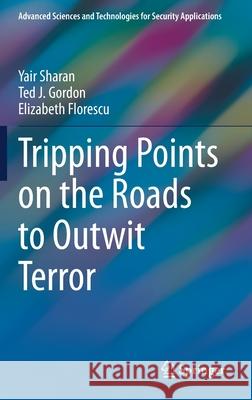Tripping Points on the Roads to Outwit Terror » książka
topmenu
Tripping Points on the Roads to Outwit Terror
ISBN-13: 9783030725709 / Angielski / Twarda / 2021 / 205 str.
Tripping Points on the Roads to Outwit Terror
ISBN-13: 9783030725709 / Angielski / Twarda / 2021 / 205 str.
cena 523,30
(netto: 498,38 VAT: 5%)
Najniższa cena z 30 dni: 501,19
(netto: 498,38 VAT: 5%)
Najniższa cena z 30 dni: 501,19
Termin realizacji zamówienia:
ok. 22 dni roboczych.
ok. 22 dni roboczych.
Darmowa dostawa!
Kategorie BISAC:
Wydawca:
Springer
Seria wydawnicza:
Język:
Angielski
ISBN-13:
9783030725709
Rok wydania:
2021
Wydanie:
2021
Numer serii:
000307417
Ilość stron:
205
Waga:
0.49 kg
Wymiary:
23.39 x 15.6 x 1.42
Oprawa:
Twarda
Wolumenów:
01
Dodatkowe informacje:
Wydanie ilustrowane











